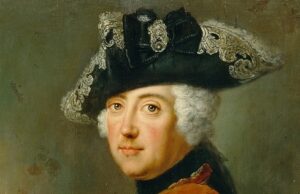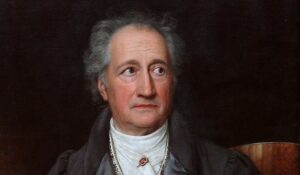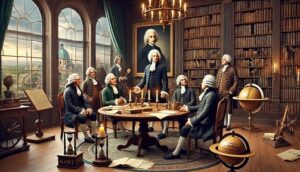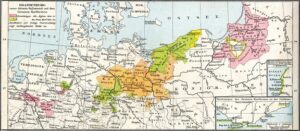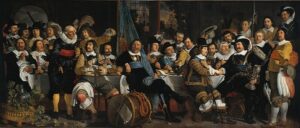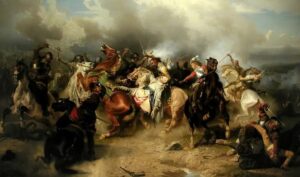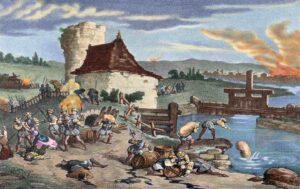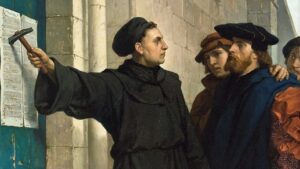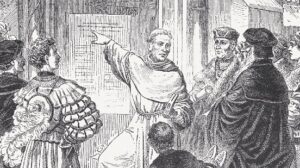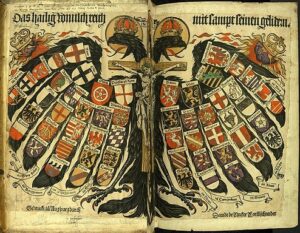Few figures in German history cast as long a shadow as Frederick II of Prussia, better known as Frederick the Great. Ruling from 1740 to 1786, he took a modest, militarized kingdom and elevated it to the ranks of Europe’s great powers. Yet Frederick wasn’t just a warrior-king - he was also a musician, philosopher, and patron of the … [Read more...]
German Science and Culture in 18th Century
The 18th century was a golden era of intellectual and cultural blossoming across Europe - and Germany was at its heart. From natural science to literature, philosophy to music, the German states produced a wave of thinkers, artists, and innovators who left a profound mark on human knowledge and creativity. This wasn’t just a time of abstract … [Read more...]
The Enlightenment in the German States
In the 18th century, a new intellectual force swept across Europe: the Enlightenment. Germany, long seen as fragmented and provincial, became one of its most vibrant arenas. From royal courts to tiny universities, from Lutheran parishes to coffee houses, thinkers across the German lands began to question old authorities and champion new ideals - … [Read more...]
Rise of Brandenburg-Prussia
In the aftermath of the Thirty Years’ War, most of Germany lay in ruins - disunited, depopulated, and politically fragmented. Yet out of this chaos rose a seemingly unlikely power: Brandenburg-Prussia. Small, scattered, and lacking natural resources, the state would transform over the next century into a disciplined, centralized, and respected … [Read more...]
The Peace of Westphalia (1648)
On October 24, 1648, after thirty years of bloodshed, destruction, and famine, the signing of the Peace of Westphalia in the cities of Münster and Osnabrück marked the end of the Thirty Years’ War - a conflict that had devastated much of Europe, especially the German lands. But these treaties didn’t just silence cannons - they reshaped Germany’s … [Read more...]
The Thirty Years’ War and Its Impact on Germany
Germany in the early 1600s was a mosaic of duchies, bishoprics, and free cities - all held loosely together within the Holy Roman Empire. But underneath that fragile peace simmered deep divisions: Catholic vs. Protestant, emperor vs. princes, and local power vs. foreign ambition. When these tensions erupted in 1618, they unleashed one of the … [Read more...]
The German Peasants’ War (1524–1525)
In 1524, the rural towns and countryside of the Holy Roman Empire exploded in revolt. Fueled by spiritual awakening, rising expectations, and long-simmering grievances, tens of thousands of peasants, laborers, and lower-class townsfolk took up arms. Their goal? To end centuries of feudal oppression - and to claim the spiritual and social freedom … [Read more...]
German Reformation and Early Modern Period
Did you know that a simple act of nailing 95 theses to a church door sparked a cultural earthquake that reshaped Europe? Welcome to the German Reformation and Early Modern Period, where fiery sermons, printing presses, and princely politics changed the world. This category explores the transformative age that redefined religion, statehood, and … [Read more...]
Martin Luther and the 95 Theses
It’s October 31, 1517. A monk named Martin Luther, hammer in hand, walks to the door of the Castle Church in Wittenberg. In a single act, he nails a list of 95 arguments - against the abuse of indulgences and Church corruption - to the door. He’s not seeking to start a revolution. But within months, Germany is ablaze with debate. Luther’s 95 … [Read more...]
The Holy Roman Empire in the Late Middle Ages
By the 14th and 15th centuries, the Holy Roman Empire was no longer the centralized dream of Charlemagne. Instead, it had evolved into a sprawling collection of kingdoms, duchies, bishoprics, free cities, and principalities—each fiercely guarding its independence while still pledging some form of loyalty to the emperor. This period, often … [Read more...]
- « Previous Page
- 1
- …
- 9
- 10
- 11
- 12
- 13
- …
- 139
- Next Page »
